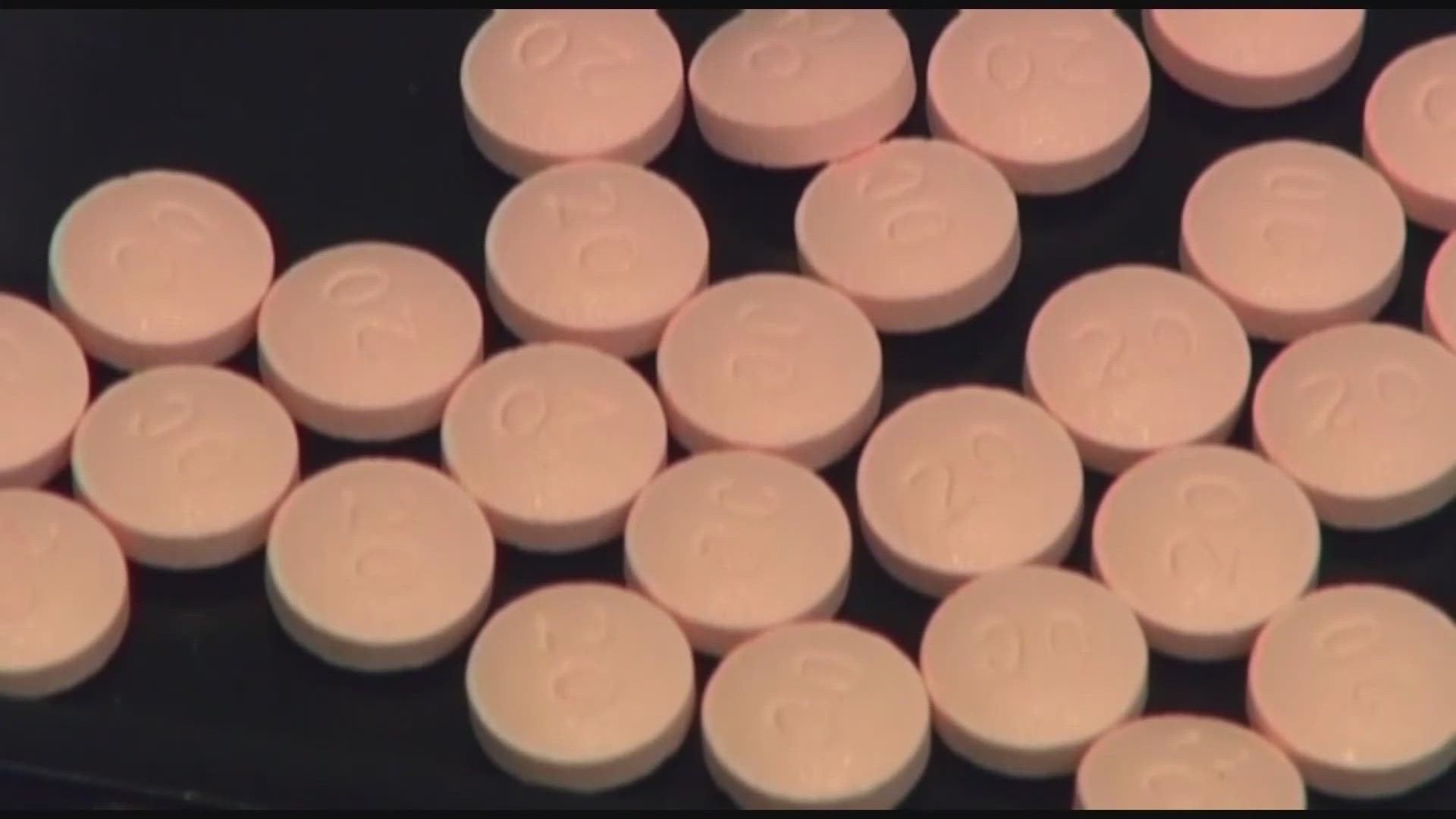BEXAR COUNTY, Texas — Bexar County has $14.4 million in opioid settlement funds to address a crisis that has taken hundreds of lives in the past couple of years; local officials reported approximately 246 overdose deaths in the county in 2021 alone.
On Tuesday, county commissioners approved a policy for how they would use that money, including funding areas of prevention, training, outreach and intervention, recovery programs, and administration.
One specific example of training includes training prescribers on the Prescription Drug Monitoring Program, which requires pharmacies to check a patient’s prescription history to eliminate overprescribing controlled substances.
“The opioid epidemic has really destroyed families, and we’re hoping that these funds can go to creating some systemic change to really help those that have been affected by the crisis,” said Dr. Andrea Guerrero-Guajardo, with the Bexar County Preventative Health and Environmental Services Department.
Some of the prevention efforts include substance abuse prevention, substance use disorder re-entry training and opioid overdose training. The training also includes expanding access to veterans’ behavioral health, harm reduction and faith-based nonprofits.
“So far we’ve been investing in treatment, administrative operations and treatment programs, and harm reduction programs like the distribution of Narcan,” Guerrero-Guajardo said.
The county established an Opioid Joint Task Force in 2017 and hired the Watts Guerra Law Firm to file a lawsuit against opioid manufacturers in May of 2018. Guerrero says the county will receive a yearly check from the settlement, but didn’t specify the amount.
Earlier this year, Bexar County announced it would purchase a 20-month supply of Narcan to provide local deputies, which they can then administer when responding to overdose emergencies.
“We’ve actually been able to reverse more than 2,000 people who have overdosed. And each of those 2,000 overdoses represents a person who now has an opportunity to get into recovery,” Guerrero-Guajardo added.
So far, $1.6 million in funds have been distributed, including the Narcan purchase and funds for the CrossPoint Women’s Wellness Campus to increase bed capacity from 20 to 40. That's expected to be done by spring of 2024.

